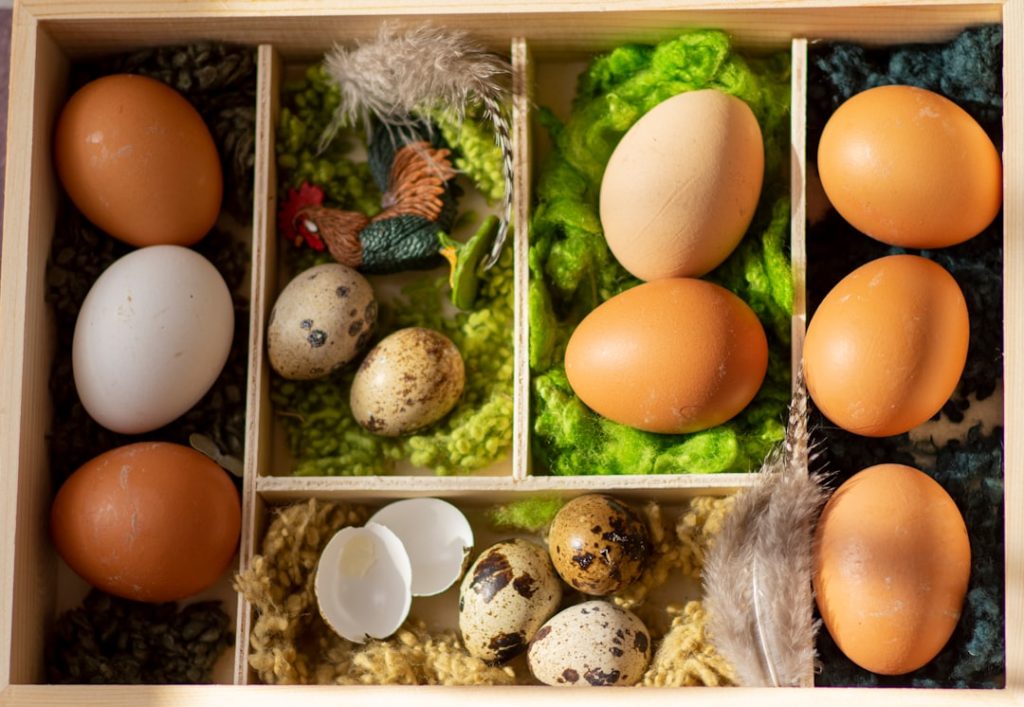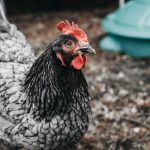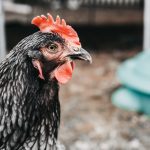Keeping chickens in a garage can provide several advantages for both chickens and their owners. The enclosed space offers protection from predators and harsh weather conditions, which is particularly beneficial for urban or suburban chicken keepers with limited outdoor space. Garages can also help regulate temperature extremes, ensuring the chickens remain comfortable year-round.
Proximity to the house allows for easier monitoring and care of the birds. Owners can readily check on their health, collect eggs, and provide food and water without traveling to a distant coop. This convenience is especially helpful for individuals with mobility issues or busy schedules.
Additionally, keeping chickens in a garage may reduce noise and odor disturbances for neighbors, making it a more suitable option for urban chicken keeping. However, there are also disadvantages to consider. The confined space of a garage may not provide sufficient room for chickens to roam and exercise, potentially leading to stress and behavioral issues that can impact their health and well-being.
Garages may also limit access to natural sunlight and fresh air, which are important for the chickens’ physical and mental health. Managing waste and odor in an enclosed space can be more challenging than in an outdoor setting, requiring additional effort and resources to maintain a clean and healthy environment. Despite these drawbacks, with proper planning and care, keeping chickens in a garage can be a viable option for many chicken keepers, offering a safe, convenient, and low-impact way to raise chickens.
Table of Contents
- 1 Setting Up a Safe and Comfortable Environment for Chickens in the Garage
- 2 Choosing the Right Breeds for Garage Chicken Keeping
- 3 Feeding and Watering Your Garage Chickens
- 4 Managing Waste and Odor in the Garage
- 5 Health and Safety Considerations for Garage Chicken Keeping
- 6 Legal and Zoning Considerations for Keeping Chickens in the Garage
- 7 FAQs
- 7.1 Can chickens be kept in a garage?
- 7.2 What are the considerations for keeping chickens in a garage?
- 7.3 How can I ensure proper ventilation for chickens in a garage?
- 7.4 What type of insulation is suitable for a garage housing chickens?
- 7.5 What lighting is needed for chickens in a garage?
- 7.6 How much space do chickens need in a garage?
- 7.7 What are the waste management considerations for chickens in a garage?
Key Takeaways
- Keeping chickens in the garage can provide fresh eggs, pest control, and a fun hobby for the family.
- Setting up a safe and comfortable environment for garage chickens involves providing proper ventilation, lighting, and nesting areas.
- Choosing the right breeds for garage chicken keeping depends on space, climate, and egg production needs.
- Feeding and watering garage chickens requires a balanced diet and access to clean water at all times.
- Managing waste and odor in the garage involves regular cleaning, proper bedding, and ventilation to prevent ammonia buildup.
Setting Up a Safe and Comfortable Environment for Chickens in the Garage
Providing Adequate Space and Enrichment
Firstly, it’s important to provide adequate space for the chickens to move around and exercise. This can be achieved by setting up a designated area within the garage that allows for free movement and access to food, water, and nesting boxes. Additionally, providing perches and other enrichment activities can help to keep the chickens active and engaged while in the garage.
Maintaining Air Quality and Temperature
Furthermore, ensuring proper ventilation is crucial for maintaining air quality and regulating temperature within the garage. This can be achieved by installing windows or vents to allow for fresh air circulation, as well as using fans or heaters as needed to maintain a comfortable temperature for the chickens.
Lighting and Bedding Considerations
Additionally, providing adequate lighting can help to simulate natural daylight cycles, which is important for the chickens’ health and egg production. In addition to space and environmental considerations, it’s important to provide appropriate bedding and nesting materials for the chickens. This can include straw, wood shavings, or other suitable materials that provide comfort and insulation for the birds. Regular cleaning and maintenance of the bedding is also essential for preventing odor and maintaining a healthy living environment for the chickens.
Choosing the Right Breeds for Garage Chicken Keeping
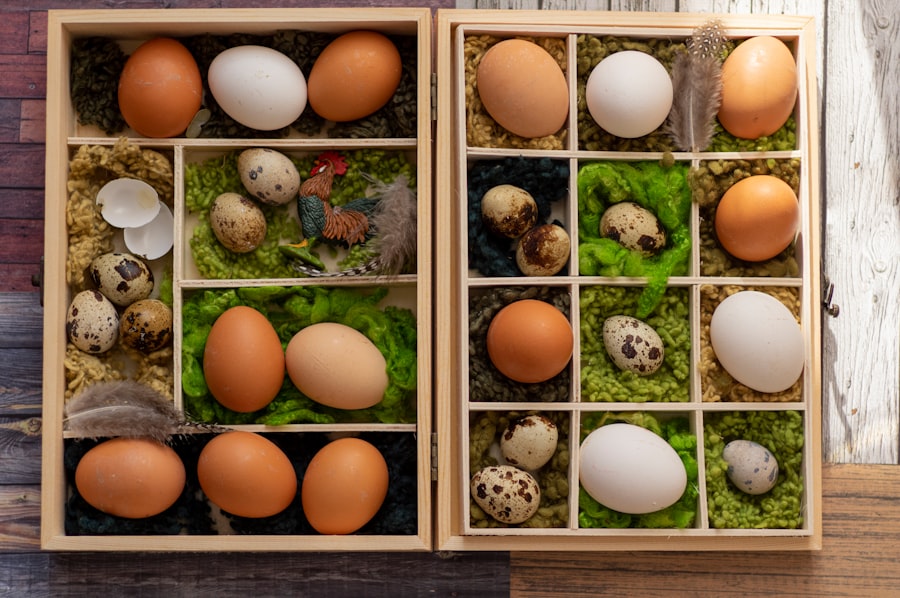
When it comes to keeping chickens in the garage, choosing the right breeds is essential for success. Certain breeds are better suited to confinement and indoor living than others, making them more suitable for garage chicken keeping. For example, bantam breeds are often recommended for indoor or confined spaces due to their smaller size and calmer demeanor.
Additionally, some breeds are known for being more adaptable to varying temperatures and environmental conditions, making them better suited for garage living. Furthermore, it’s important to consider the purpose of keeping chickens in the garage when choosing breeds. For those primarily interested in egg production, selecting breeds known for high egg yields and consistent laying habits is important.
On the other hand, those interested in meat production may prioritize breeds known for their fast growth rates and high-quality meat. Additionally, considering the temperament and behavior of different breeds is important when choosing chickens for garage living, as some breeds may be more prone to stress or behavioral issues in confined spaces. In addition to breed considerations, it’s important to consider the individual needs of each chicken when selecting breeds for garage living.
Some chickens may have specific health or behavioral needs that should be taken into account when choosing breeds. Overall, selecting the right breeds for garage chicken keeping requires careful consideration of size, temperament, purpose, and individual needs to ensure a successful and harmonious living environment for the birds.
Feeding and Watering Your Garage Chickens
Proper feeding and watering are essential for maintaining the health and well-being of chickens kept in the garage. Providing a balanced diet that meets the nutritional needs of the birds is crucial for their overall health and productivity. This can include a combination of commercial poultry feed, fresh fruits and vegetables, grains, and supplemental sources of protein such as mealworms or kitchen scraps.
Additionally, ensuring access to clean water at all times is essential for preventing dehydration and maintaining proper bodily functions in the chickens. Furthermore, it’s important to establish a feeding and watering routine that provides consistent access to food and water throughout the day. This can help to prevent competition among the birds and ensure that each chicken has adequate access to nourishment.
Additionally, monitoring food consumption and water intake can help to identify any potential health issues or irregularities in the birds’ behavior. In addition to providing regular meals and access to water, it’s important to consider any dietary supplements or additives that may be beneficial for garage chickens. This can include vitamins, minerals, probiotics, or other supplements that support overall health and immunity in the birds.
Consulting with a poultry nutritionist or veterinarian can help to determine any specific dietary needs or recommendations for garage chickens based on their individual health and living conditions. Overall, proper feeding and watering practices are essential for maintaining the health and well-being of chickens kept in the garage.
Managing Waste and Odor in the Garage
Managing waste and odor is a critical aspect of keeping chickens in the garage that requires careful attention and maintenance. The confined space of a garage can make it more challenging to control waste buildup and prevent unpleasant odors from developing. However, with proper management strategies in place, it is possible to maintain a clean and odor-free environment for garage chickens.
One effective way to manage waste in the garage is by using suitable bedding materials that absorb moisture and control odor. This can include materials such as straw, wood shavings, or hemp bedding that help to absorb droppings and prevent ammonia buildup. Regularly cleaning and replacing soiled bedding is essential for preventing odor and maintaining a healthy living environment for the chickens.
Additionally, implementing a regular cleaning schedule for the garage can help to manage waste buildup and prevent odor issues. This can include daily spot cleaning of soiled areas, as well as weekly deep cleaning of the entire space to remove accumulated waste and debris. Proper waste disposal practices are also important for preventing odor and maintaining cleanliness in the garage.
Furthermore, using odor control products such as natural deodorizers or enzymatic cleaners can help to neutralize odors and maintain a fresh-smelling environment in the garage. These products can be used on bedding, surfaces, or in air circulation systems to help manage odors effectively. Overall, managing waste and odor in the garage requires regular cleaning, proper waste disposal practices, suitable bedding materials, and odor control products to maintain a clean and healthy living environment for garage chickens.
Health and Safety Considerations for Garage Chicken Keeping
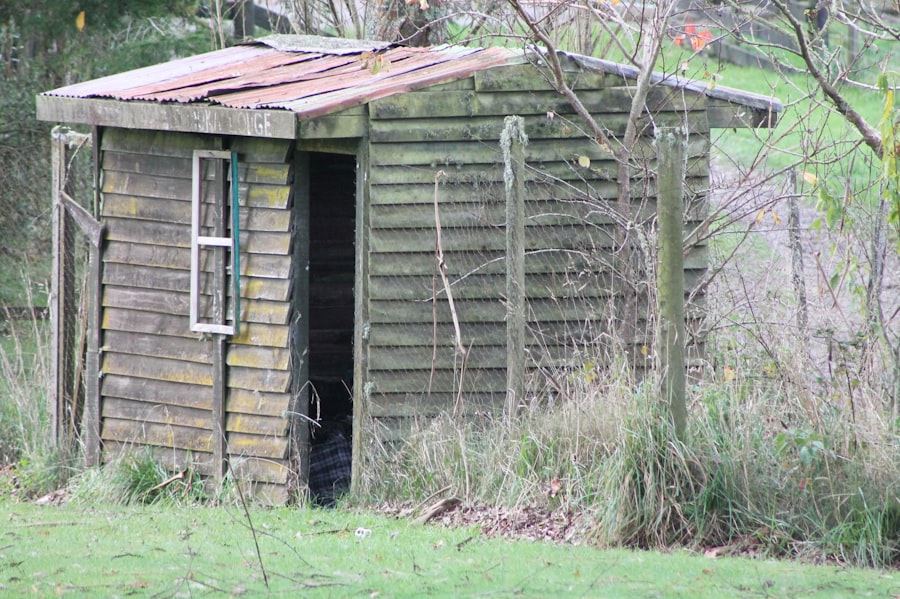
Monitoring Health and Addressing Concerns
Regular monitoring of the birds’ overall health is crucial, involving observation of their behavior, appearance, and eating habits. Any signs of illness or distress should be addressed promptly by consulting with a poultry veterinarian or experienced chicken keeper.
Preventing Disease Outbreaks
Providing appropriate veterinary care is essential for preventing disease outbreaks and maintaining overall wellness in garage chickens. This includes vaccinations, parasite control, and regular health check-ups to protect against common poultry diseases such as coccidiosis, respiratory infections, or external parasites. Implementing biosecurity measures, such as quarantine protocols for new birds or visitors, can help prevent disease transmission within the flock.
Creating a Safe Living Environment
Ensuring a safe living environment is crucial for preventing injuries or accidents among garage chickens. This involves providing secure perches, nesting boxes, and other structures that minimize the risk of falls or entrapment. Removing potential hazards such as sharp objects, toxic substances, or electrical cords from the garage can help prevent accidental injuries among the birds.
Legal and Zoning Considerations for Keeping Chickens in the Garage
Before embarking on keeping chickens in the garage, it’s important to consider any legal or zoning regulations that may apply to poultry keeping in your area. Many cities or municipalities have specific ordinances regarding keeping poultry within residential areas that may restrict or regulate certain aspects of chicken keeping. Firstly, it’s important to research local zoning laws that pertain to poultry keeping within residential areas.
Some areas may have restrictions on the number of birds allowed per property or specific requirements regarding coop size or placement. Understanding these regulations is essential for ensuring compliance with local laws while keeping chickens in the garage. Additionally, some areas may have specific regulations regarding noise disturbances or odor control related to poultry keeping that could impact keeping chickens in a confined space like a garage.
Understanding these regulations can help you plan accordingly to minimize potential disturbances or conflicts with neighbors. Furthermore, it’s important to consider any homeowner association (HOA) rules or covenants that may apply to poultry keeping within your neighborhood. Some HOAs may have specific restrictions on poultry keeping or require approval before starting a chicken-keeping operation on your property.
Overall, understanding legal and zoning considerations related to keeping chickens in the garage is essential for ensuring compliance with local regulations while creating a safe and harmonious living environment for both your birds and neighbors.
If you’re considering keeping chickens in your garage, you may also be interested in learning about different chicken coop designs and interior ideas. Check out this article on chicken coop interior ideas for inspiration on how to create a comfortable and functional living space for your feathered friends.
FAQs
Can chickens be kept in a garage?
Yes, chickens can be kept in a garage as long as the space is properly ventilated, insulated, and provides enough room for the chickens to move around comfortably.
What are the considerations for keeping chickens in a garage?
When keeping chickens in a garage, it’s important to consider ventilation, insulation, lighting, and space requirements. Additionally, proper waste management and odor control are important factors to consider.
How can I ensure proper ventilation for chickens in a garage?
Proper ventilation for chickens in a garage can be achieved by installing windows, vents, or exhaust fans to allow fresh air to circulate and prevent the buildup of harmful gases such as ammonia.
What type of insulation is suitable for a garage housing chickens?
Insulating the garage with materials such as foam board, fiberglass, or reflective insulation can help regulate the temperature and keep the chickens comfortable in both hot and cold weather.
What lighting is needed for chickens in a garage?
Chickens require a consistent light source to maintain their egg production. Providing artificial lighting in the garage can help supplement natural light and ensure that the chickens receive the required amount of light each day.
How much space do chickens need in a garage?
Chickens need at least 2-3 square feet of space per bird inside the garage. It’s important to provide enough room for the chickens to move around, perch, and nest comfortably.
What are the waste management considerations for chickens in a garage?
Proper waste management is essential when keeping chickens in a garage. This includes regular cleaning of the coop, proper disposal of waste, and using materials such as straw or wood shavings to absorb moisture and control odors.
Meet Walter, the feathered-friend fanatic of Florida! Nestled in the sunshine state, Walter struts through life with his feathered companions, clucking his way to happiness. With a coop that’s fancier than a five-star hotel, he’s the Don Juan of the chicken world. When he’s not teaching his hens to do the cha-cha, you’ll find him in a heated debate with his prized rooster, Sir Clucks-a-Lot. Walter’s poultry passion is no yolk; he’s the sunny-side-up guy you never knew you needed in your flock of friends!

